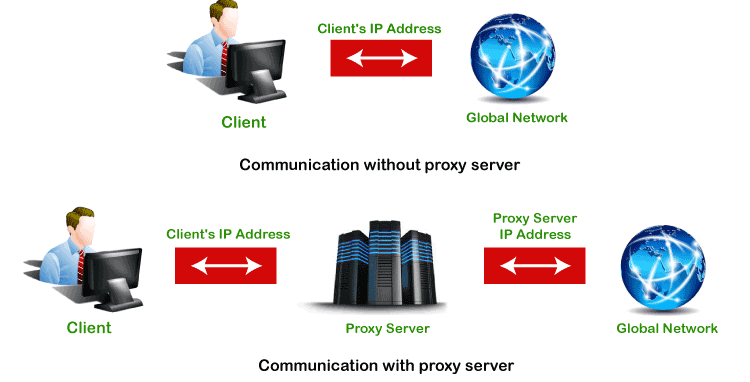In an age where digital footprints are easily traced and online privacy is becoming increasingly hard to find, many users are turning to proxy servers as a means of keeping anonymity. These intermediary servers act as a bridge between you and the internet, helping to mask your IP address and enhance your online privacy. Grasping what a proxy server is and how it works is crucial for anyone looking to navigate the web with a layer of protection.
Although there are multiple tools available for enhancing online security, proxy servers offer unique advantages that can complement other solutions like VPNs. In our exploration of the art of remaining masked online, we will examine the multifaceted benefits of using proxy servers—from safeguarding your identity and evading IP bans to improving your online gaming experience. Whether you are a business looking to secure your network or an user aiming to bypass geo-restrictions and access media, this guide will equip you with the insight to make educated choices about employing proxy servers efficiently.
Comprehending Proxy Servers
Proxies act as go-betweens between a user's device and the internet. When a user sends a query for resources online, the request first goes to the proxy server. The proxy then passes this request to the intended web server, acquires the information, and sends it back to the user's device. This procedure effectively masks the user's original IP address, providing a layer of privacy and making it more difficult for websites to track user activity.
One of the main functions of a proxy server is to boost online privacy and security. By obscuring the user's IP address, proxies help protect personal data from possible hackers and snoopers. Additionally, certain types of proxies can screen content, restrict unwanted ads, and enhance the browsing experience by storing frequently accessed web pages, which can lead to faster loading times.
Different types of proxy servers, such as HTTP, Socket Secure, and transparent proxies, serve various functions. HTTP proxies are often utilized for web browsing, while SOCKS servers can get various types of traffic, including P2P connections. Transparent proxies do not alter requests or responses, making them suitable for organizations that want to observe employee internet usage without interfering with the browsing experience. Understanding these features is important for users seeking to improve their online anonymity and security.
VPNs: An Analysis of Differences
When comparing proxy servers and VPNs, it is essential to understand their main roles and how they differ in protecting online privacy. A proxy server acts as an intermediary between a user's device and the web, routing queries and returning responses while hiding the user's IP address. However, it does not encrypt internet traffic, meaning data can still be captured during transmission. In contrast, a proxy server establishes a secure and safe tunnel between the user's device and the server, providing a greater extent of privacy and protection against eavesdropping.
The choice between using a proxy server and a VPN often depends on the requirements of the user. If https://omeka.net is to bypass geographic restrictions or improve internet speed without concern for security, a proxy server may be sufficient. Conversely, for individuals or businesses prioritizing security, especially while accessing sensitive information or using public Wi-Fi, a VPN is the better option. The added encryption offered by a VPN protects data from potential threats, making it a superior option for safeguarding personal information.
While both proxy servers and proxy servers can enhance online anonymity, they serve different purposes in the realm of internet privacy and confidentiality. Users seeking versatile protection, especially in high-risk scenarios, should think about a VPN. On the other hand, those who merely want to view restricted content without deep privacy needs might find proxy servers adequate. Ultimately, grasping the differences and functionalities of these options is crucial for making an informed decision about online anonymity.
Benefits and Drawbacks of Utilizing Proxy Servers
Utilizing proxy servers provides multiple benefits, particularly for enhancing internet privacy and security. By functioning as middlemen between users and the internet, proxy servers hide the individual's IP address, rendering it challenging for websites and malicious actors to track their online activities. This added layer of privacy not only safeguards personal information but also assists in circumventing geographical barriers on content. Additionally, proxies can block harmful content and enhance browsing speed by storing popular websites.
On the other hand, there are risks involved with proxy servers, particularly when using free services. Many free proxies may not have sufficient security measures in place, possibly putting users to security vulnerabilities or monitoring by third parties. Furthermore, these servers can be inconsistent, resulting in inconsistent access and decreased internet speeds. It's crucial to select reputable providers to reduce these dangers and ensure optimal performance.
Lastly, while proxy servers can be useful for accessing geo-restricted content, they come with potential repercussions. Some streaming services actively detect and restrict proxy connections, which can result in service outages. Additionally, relying solely on proxies for security may create a false sense of security; users should complement proxy usage with other safety measures, such as robust passwords and updated antivirus software, for comprehensive cybersecurity.

